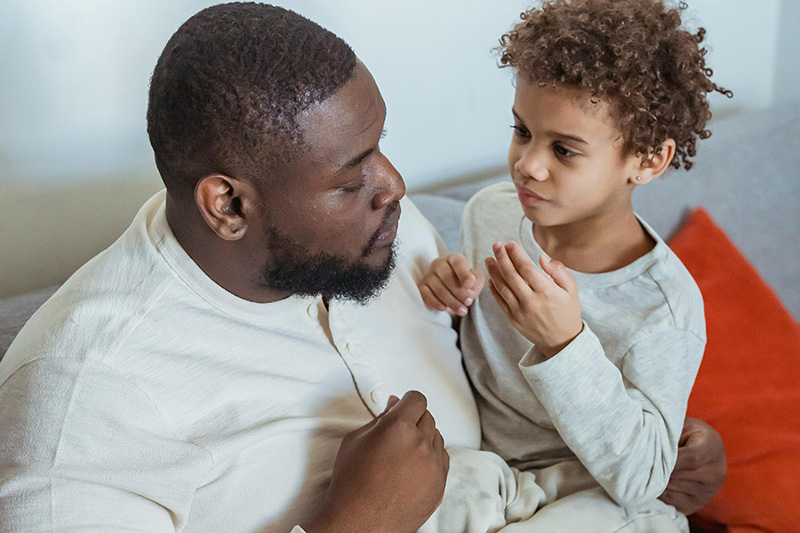Communication is necessary in order to understand and interact with the world around us. It includes all the ways we comprehend and connect with others. Our ability to communicate is a reliable predictor of our quality of life. We begin communicating even before we are born and continue to develop skills throughout the rest of our lives.
Childhood development is the foundation for learning essential communication skills; first words are said and first friendships are formed. With any skill, however, some children acquire language more naturally than others. Some children can experience difficulties learning to express themselves and knowing what others are trying to convey to them, ultimately leading to frustration and even problematic behaviors between both parties.
Fortunately, communication development is dependent on the environment and stimuli the child is exposed to. This involves toys, family members, peers at school, and teachers or caregivers, highly influencing children as they act as sponges throughout growth. By being aware of this, we can use specific strategies to help foster proper communication development and teach children new skills.
Ways to help improve your child’s communication skills:
Reading Picture Books
No matter the age, reading is always an effective way in improving our language skills and widening our vocabulary. Particularly for children, hearing words and seeing the picture allows them to make the connection between words and objects.
Good Role Modeling
Children absorb anything people say or do around them. By being aware of when you are being watched by your child and communicating how you would like them to, they can pick up on such skills through observation.
Effective Responding
Based on how many words your child can use at a time when talking about a topic, you can also respond back in a way that facilitates their learning. This is done by responding in complete sentences and adding more words than they had originally said. An example of this can include:
Child: “Dog!”
Caregiver: “Yes, that is a dog!”
Narration of Routines
Simply saying what you are doing in simple terms as you do them can allow your
child to make a connection to your words and the tasks being completed.
Provide Undivided Attention
When your child is attempting to communicate with you, it is important you provide your undivided attention. This may include stopping what you are doing, making eye contact, and giving an effortful response. Attention is a positive reinforcement for most children and can motivate them to continue their language development.
Practice Nonverbal Communication
Nonverbal communication is just as important as verbal communication. It can be practiced by demonstrating cues and asking your child what they think it means, followed by providing a correct answer. For example, you can practice what emotions are represented by different facial expressions or what gestures, such as waving, can indicate.
Teach Nursery Rhymes
Childhood rhymes such as “Twinkle Twinkle Little Star” and “Mary Had a Little Lamb” are actually highly beneficial for language development. Not only does it promote memory usage, but it also allows children to practice pronunciation, sound out vowels, and comprehend what they are saying about the story. It also exercises oral muscles as well that may not be activated through normal speaking due to the rhymes, rhythm, and pitch of the songs.









